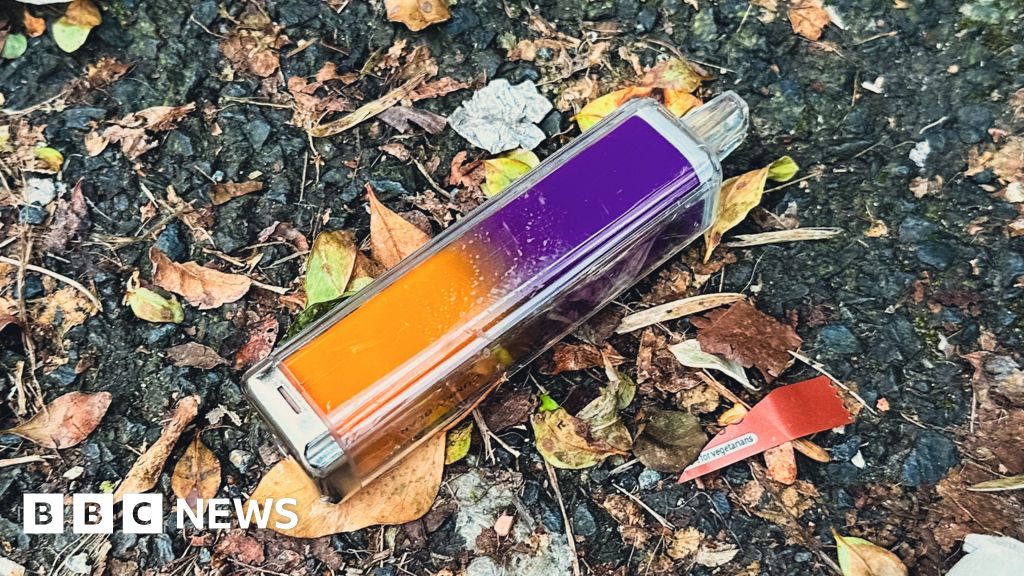Almost five million single-use vapes were either littered or thrown into general waste each week in 2023, according to the Department for Environment, Food, and Rural Affairs (Defra).
Batteries thrown into household waste cause hundreds of fires in bin lorries and waste-processing centres every year.
As well as lithium-ion batteries, vapes also contain circuit boards which – if not disposed of properly – can leach toxic compounds such as cobalt and copper into the environment as they degrade.
These minerals and the lithium could, if recovered, be reused for green technologies such as electric car batteries or in wind turbines. These industries are already facing a potential shortage of these metals as demand for clean energy grows, external.
In 2022, vapes containing a total of more than 40 tonnes of lithium were discarded, enough to power 5,000 electric vehicles, the government said.

